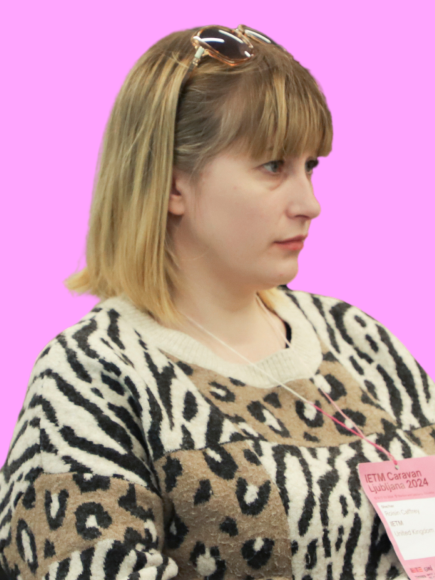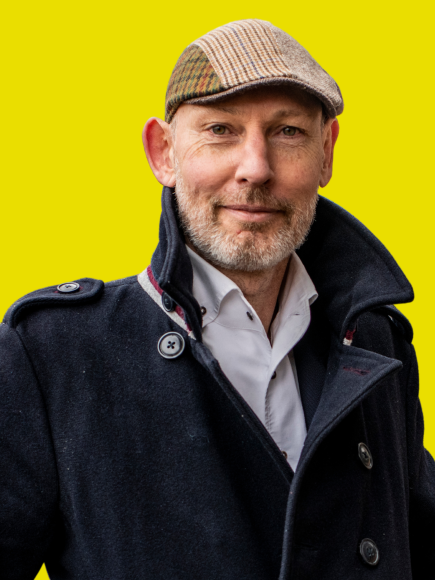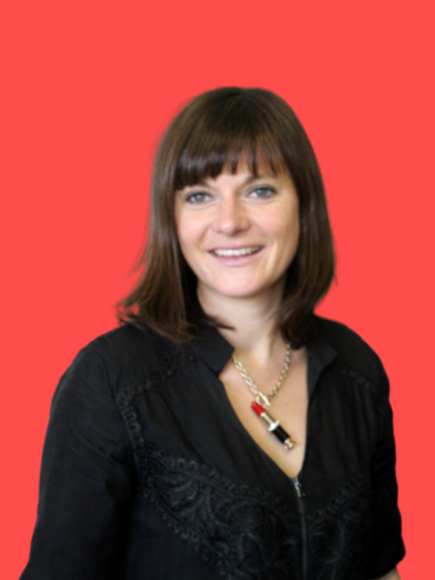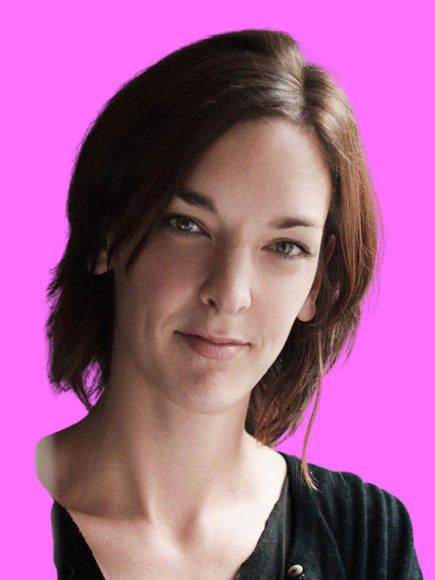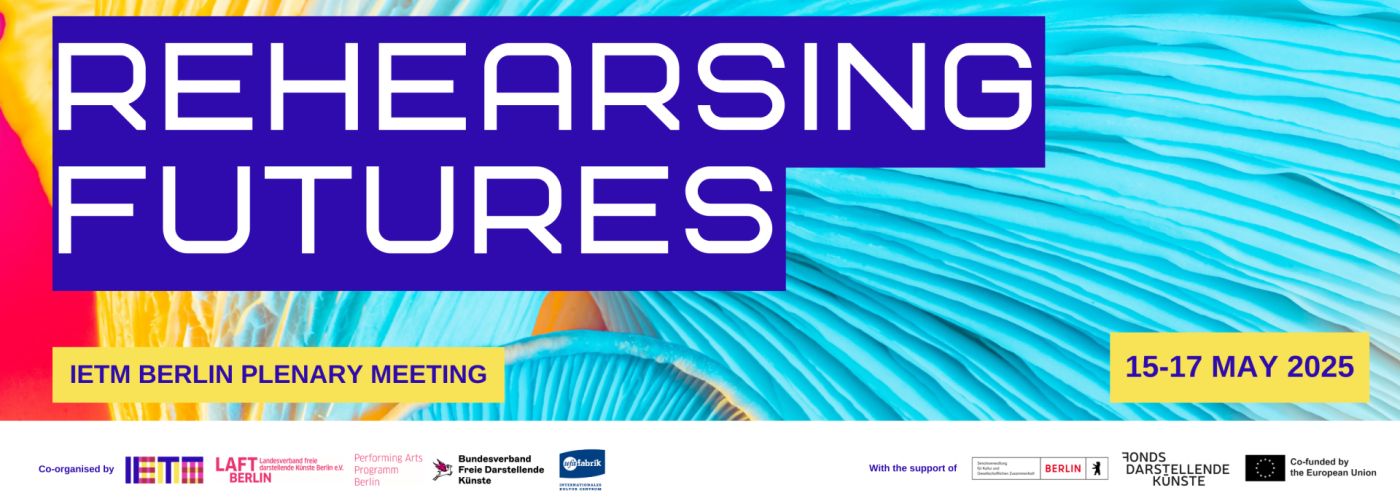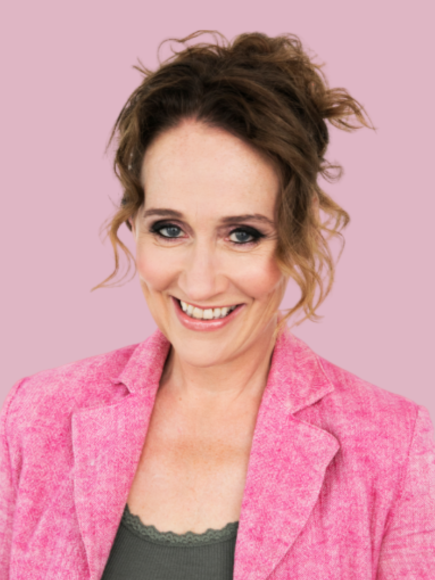
What to Expect at the IETM Berlin Plenary Meeting 2025 - Safety, advice and context
IETM’s work is guided by the following principles:
- Creating a space in which all voices can be heard, and an environment in which opposing views can exist without judgement and prejudice;
- Our stated stand on freedom of expression;
- We do not tolerate discrimination of any kind.
We are committed to and care deeply about creating a welcoming environment for all members and participants of the IETM Berlin Plenary Meeting, which allows for exchange between diverse backgrounds and perspectives. The information below is intended to provide useful background and answer some frequently asked questions, since there has been a considerable amount of scrutiny and media coverage concerning Germany in recent months. This information is not comprehensive; participants will also need to do their own research in order to make decisions about their participation in the Plenary.
Freemuse* has just released its 2025 report on the state of artistic freedom. Within it, you can find a chapter on Germany's ongoing censorship, in particular in connection to Palestine. We strongly encourage you to read the report. It contains several references to specific cases which might be useful for participants to know about.
*Freemuse is an independent international non-governmental organisation advocating for freedom of artistic expression and cultural diversity. Freemuse has United Nations Special Consultative Status to the Economic and Social Council (UN-ECOSOC) and Consultative Status with UNESCO.
Frequently asked questions
Is Berlin a safe city?
As in any major capital city, it’s wise to take care when travelling alone at night. While home to a cosmopolitan community, Berlin is a white-dominated city. Berlin has a very large and present LGBTQ+ community and you can find travel advice about this here. When attending venues outside of the Plenary venues, please contact them directly with any questions you may have about security and safety.
What is the status of freedom of speech in Germany?
Germany’s constitution (Basic law) protects freedom of expression (Article 5 GG), but this right is limited when it infringes on the dignity, safety, or rights of others. Laws criminalise hate speech, incitement to violence, defamation, Holocaust denial, and the use of anti-constitutional symbols. These restrictions are more actively enforced than in some other countries, and police may investigate speech made in public settings, even in artistic or political contexts.
Are there certain phrases I cannot use in Germany?
Yes. Speech that insults individuals or groups, incites hatred, defames, denies historical crimes (such as the Holocaust), or is judged to be anti-constitutional may result in criminal investigation or charges.
There is increased public sensitivity—and legal scrutiny—around expressions related to Israel and Palestine. While general discussion of the conflict is protected under law, expressions such as “From the river to the sea – Palestine will be free” have led to investigations by authorities, especially when used in demonstrations or public performances. An example of this in the arts world was an incident at the 2025 Berlin film festival. Questioning the right of existence of Israel in public speeches or on a sign during a demonstration, for example, may also attract the same attention.
Are there certain items I cannot wear in Germany, for example clothing or symbols showing solidarity with Palestine?
Political symbols—including those expressing solidarity with Palestine—are generally protected under Germany’s freedom of expression laws. However, displaying symbols deemed anti-constitutional (e.g. Nazi insignia) is a criminal offence, except in clearly artistic contexts such as stage performance. While there is no general ban on pro-Palestinian clothing or insignia, heightened sensitivity in the current political climate means individuals wearing certain items in public demonstrations or institutional settings may attract attention from authorities.
Might I be refused entry to Germany as a result of past activity (such as social media posts), political affiliation or any other reason?
In the experience of organisations that support artists travelling to Germany, this is highly unlikely. So far, entry to Germany has been refused to two prominent speakers travelling to a summit about Palestine.
How would IETM respond if a protest occurs during the Plenary meeting?
IETM supports the right to peaceful protest, in line with European and German law (Article 10 ECHR; German Assembly Law). Should a protest occur during the Plenary, moderators, the IETM and partner teams, and venue staff (ufaFabrik) will engage respectfully and proportionally, aiming to uphold safety without suppressing lawful expression.
An on-site awareness team is available to support any participants affected by distress or disruption.
If a protest or comment targets individuals or creates a hostile environment, staff will remind those involved of IETM’s community guidelines. Continued breaches may result in being asked to leave.
Are the police or authorities able to enter the Plenary meeting?
By German law, police cannot enter the premises of a venue without consent of the owner unless they consider illegal activity to be taking place on site, they have a warrant or they consider there to be potential danger to people inside the premises. There have been cases of the police entering political events but none in the cultural sector.
What measures is IETM taking to offer support during the Plenary?
- Please read our community guidelines, which we ask all participants to respect.
- Moderators and facilitators for the 16 and 17 May programme at ufaFabrik have been briefed on the community guidelines and our approach to freedom of speech, and will uphold them when moderating discussion in all sessions, in order to create an environment focused on dialogue and mutual respect even when discussing difficult subjects in depth.
The Journeys on 15 May are planned and led by the organisations delivering them. We have shared with them IETM’s community guidelines and asked them to uphold them during their sessions.
- In an era of increasing polarisation, particularly on social media, we are committed to providing a respectful environment for all speakers and participants. To support open and honest dialogue, this meeting will follow the Chatham House Rule: participants are free to use the information shared, but not to link this information to nor to identify speakers or other participants, their organisations or affiliations. This includes refraining from naming individuals or organisations on social media.
- An awareness team will be present on the ufaFabrik site during the daytime conference activities on 16 and 17 May. This team consists of experienced practitioners who provide listening and support to anyone who feels affected by any of the discussions that take place during the meeting or who experiences discrimination. You are welcome to approach them for confidential support at any time. They are also trained in de-escalation and will be present in some of the sessions. They will be wearing bright coloured vests.
The awareness team will provide observations to the organising team if they see need for improvement during the Plenary.
Please note: this service is not the equivalent of counselling or therapy. One of our partner organisations Diversity Arts Culture provides an online list of counselling services in Berlin and can also be addressed in English.
- There will be a relaxed room, where you can take a break from the meeting in a quiet space.
- Should there be an incident that takes place during the Plenary which requires legal expertise, the organising team has put in place a protocol for this. Please find Ása or Roisin.
- General liability insurance (sometimes called public liability insurance ) is covered by LAFT and ufaFabrik for anything on site on 16 and 17 May. On 15 May, it is covered by the organisation that is delivering the activity.
- Holders of EHIC cards are encouraged to bring their card with them. We encourage participants to consider purchasing their own health/travel insurance.
- First aid is provided on the ufaFabrik site on 16 and 17 May by trained ufaFabrik staff members.
If you still have questions that are not answered here, please contact: [email protected]. This email address is monitored by IETM Staff Members.
If you would like to talk to a member of the project team about an issue during the meeting, you can speak to the following people on site

